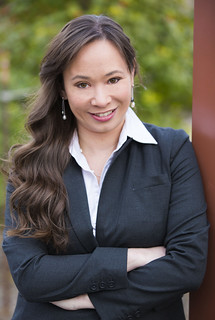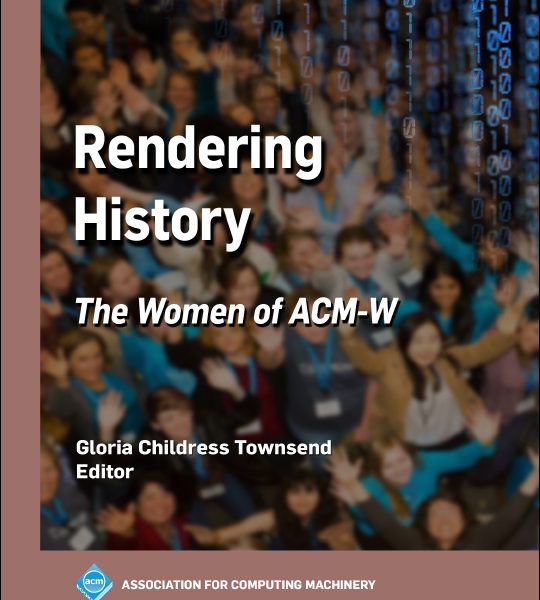
Vanderbilt computer scientist Pamela Wisniewski has contributed significantly to the human-computer interaction research field and is a leading scholar in adolescent online safety. Her personal journey is prominently featured in a recently published book, “Rendering History: The Women of ACM-W” that celebrates the 30th birthday of the Association for Computing Machinery’s Committee on Women in Computing (ACM-W).
“I am excited to share my personal story as a woman in computing. It is shared alongside other amazing and high-profile women—deans, directors, department chairs, authors and editors—in computing,” said Wisniewski, Flowers Family Fellow in Engineering and associate professor of computer science. “ I am extremely honored and humbled to be included in this compilation.”
Many of the 38 women profiled share intimate details of their personal and professional lives. They come from North and South America, Europe and Asia and reveal the motivations, struggles, and triumphs in their transformative work that has reshaped the computing landscape for women and young girls. The main theme of the book is the organization’s maturation from a US-centric organization to a global leader in supporting the advancement of women in computer science. Many of the women have been pioneers in computing and its roles in society, and in ACM-W.
 Wisniewski, for instance, has made maximizing the benefits of technology while minimizing its harm to vulnerable populations—youth, older adults, neurodiverse, and LGBTQ+ individuals—the primary goal of her career. Surviving an abusive childhood and overcoming the challenges of being a woman and interdisciplinary scholar in the field of computing, she identifies as a “scholar activist” committed to research and scientific rigor but equally committed to advocacy related to situations of origin.
Wisniewski, for instance, has made maximizing the benefits of technology while minimizing its harm to vulnerable populations—youth, older adults, neurodiverse, and LGBTQ+ individuals—the primary goal of her career. Surviving an abusive childhood and overcoming the challenges of being a woman and interdisciplinary scholar in the field of computing, she identifies as a “scholar activist” committed to research and scientific rigor but equally committed to advocacy related to situations of origin.
“I built my research career around promoting the online safety and well-being of youth. This includes helping teens be more resilient against cyberbullying and sexual predation risks online,” said Wisniewski, who reflects that technology is a double-edged sword that can serve both to harm and protect young people.
Wisniewski’s work on adolescent online safety has been recognized nationally and internationally by the U.S. Federal Trade Commission, Netherland’s Down to Zero Alliance on combatting the online sexual exploitation of children, and most recently, by the White House’s Biden-Harris Task Force on Kids Online Health and Safety. She is an ACM Senior Member, Computing Research Association CCC Council Member, and a non-resident fellow of the Center for Democracy and Technology.
Wisniewski has authored more than 150 peer-reviewed publications and won multiple best papers (top 1%) and best paper honorable mentions (top 5%) at ACM SIGCHI conferences. Her research has been featured by popular news media outlets, including Scientific American, ABC News, NPR, Psychology Today, and U.S. News and World Report. She is the recipient of the National Science Foundation’s prestigious CAREER Award for her innovative, teen-centric approach to adolescent online safety, and was the first computer scientist to ever be selected as a William T. Grant Scholar for her work on reducing digital inequality in youth outcomes.
“Given my tumultuous childhood, resilience-based approaches that help youth thrive in the face of adversity are near and dear to my heart. I frame my research through a lens of social-ecological resilience—the support systems like family, friends, and community in which youth are embedded—rather than viewing resilience as an immutable trait of certain individuals.”
In that way, Wisniewski says if individuals fail to thrive, it isn’t necessarily a personal failure as much as a failure of the systems of support surrounding them. “Resilience is building stronger support systems and communities around people to protect and empower them.”
The book is edited by Gloria Townsend, an author, computer scientist, and DePauw University professor internationally known for her support of women in computing. The book was published April 10, 2024, by the Association for Computing Machinery, New York, NY.
Contact: brenda.ellis@vanderbilt.edu